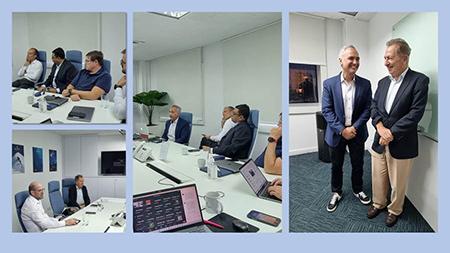Cercle International X-PM, october 27, 2022
Our guest speaker American-born and long-time Singapore resident Steven Okun, Senior Advisor at McLarty Associates and CEO of APAC Advisors addressed the issue of “Businesses Rebalancing their Footprint in Asia” considering the current cold war conflict between China and the USA.
Here are some of the key takeaways from the session:
- Aside from any speculation on a future World Order, America still holdsthe key to making decisions that drastically impact the world economy. We have seen it in the past and we are seeing it now in the US-China conflict.
- Overall, a vast majority of Americans whether Democrats or Republicanshave an unfavourable opinion of China and support America in seekingto establish absolute technological superiority by impeding China’sprogress in the most advanced areas such as Semiconductors and Artificial Intelligence. Reactions from China on the ground have been loud and confrontational.
- For foreign businesses operating in China, that are already facing talent shortage due to the zero-Covid restrictions, life could get even more complicated in the short term. Especially if China decides to retaliate by expelling expats or restricting foreign businesses on its soil.
- The midterm results may signal a Republican comeback and a possible “America First” revival compromising cooperation between the USA and their traditional allies and making the situation in China even more challenging for businesses. Especially if new laws are passed regarding the status of Taiwan as a non-NATO US ally.
- Private equity investment shift from China to South-East Asia and India is already observed.
- Southeast Asia can be seen as a priority destination for foreign businesses as countries in the region tend to maintain a neutral position between USA and China. However, one should be aware of infrastructural limitations, for example, a country like Vietnam can only accommodate a very small percentage of operations from China in any industry. In addition, severe climate vulnerabilities and ESG complications need to be considered when doing business in Vietnam.
- Relocating international companies in India allows them to take advantage of a large internal market but setting up businesses in India requires rigorous climate and infrastructure assessment and it’s not an easy task.

In summary, Steven’s advice to businesses is “winter is coming, companies need to reallocate their assets in Asia (such as Singapore), they must work on different scenarios and considering the business as usual is not the prevailing one”.
The Grey Rhino is now in front of you. Act now before you get hurt.





